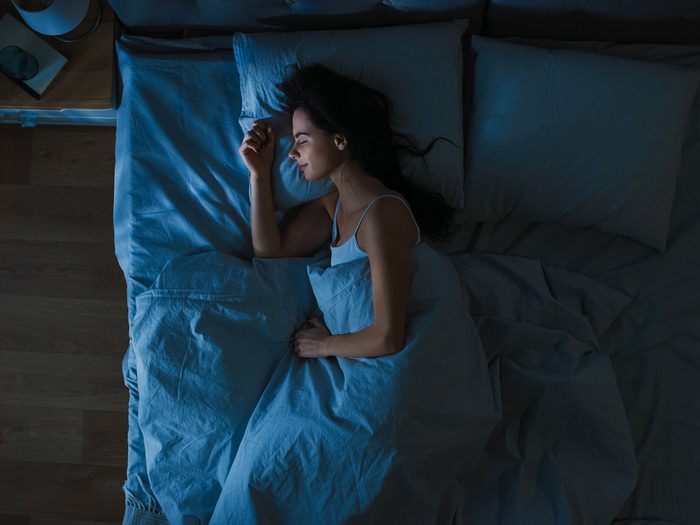
Sleeping Tips From Around the World
Having a good night’s sleep allows your body to function at its best: It boosts your immune system, lowers stress, improves mental sharpness and may even lower your chances of overeating. But as anyone who has ever sat up at night staring at the clock knows, getting the recommended seven-plus hours can be elusive.
There is no shortage of techniques that really work: sleep in a darkened, cool bedroom; avoid prolonged screen time before bed; get regular exercise; and aim to wake up and go to bed at the same time every day.
But we unearthed some lesser-known sleeping tips that are well worth a try: six from around the world, and one from right here in Canada.
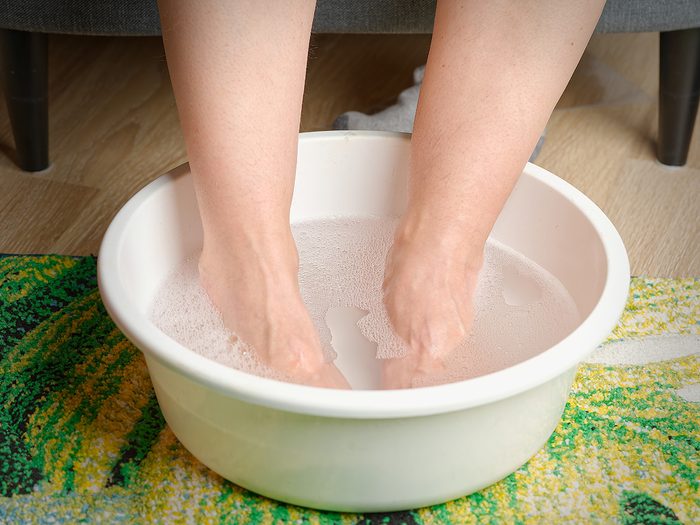
Sleeping tips from China
Foot massages and spa treatments that are focused on the feet—including aromatherapy and wrapping the feet in warm towels—are widely practised across China. What could be more relaxing? The ritual is so beloved that many people perform a DIY version at home before bedtime each night.
Automatic foot spas are ubiquitous in Chinese households. Every night, people soak their feet in hot water; many machines have exfoliating and massage functions, too. The routine is done right before bed, so that after you dry your feet, they are still warm when you tuck in.
Beyond the hygiene aspect, putting feet in a warm basin and massaging them can stimulate blood circulation by dilating your vessels. Having warmer feet may lower your core body temperature, helping you fall asleep faster.
A 2018 South Korean study of people who wore socks to sleep, which warms the feet, found that they fell asleep seven minutes faster than those who didn’t wear socks. And they slept for 32 minutes longer, too.
Find out if CBN can really help you sleep.
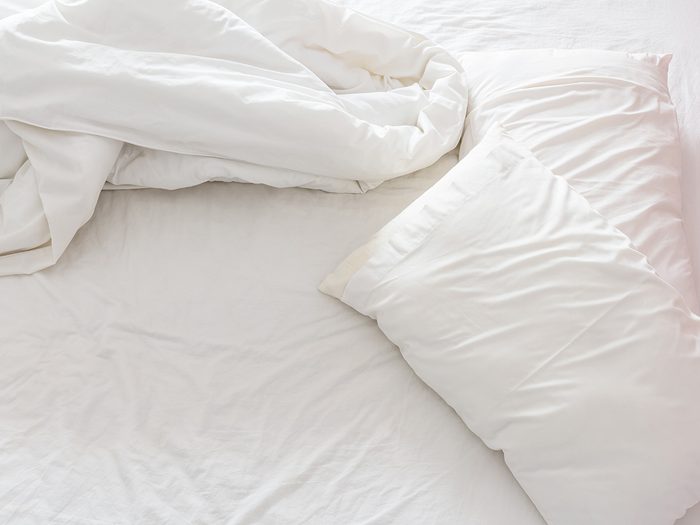
Germans use separate duvets
In Germany, couples have solved the problem of one of them waking up cold whenever their partner rolls over and takes the sheets with them. While it’s typical for partners to share a bed—often two singles pushed together—each chooses their own single-sized sheets and a separate duvet.
Not only does that make it less likely that your partner will disturb your sleep when they move around, but you can each customize the amount of bedding you use to stay as warm or as cool as you prefer at night.
“Different sets of bedding can be great,” says Michael Breus, a California-based author of several books about sleep and a clinical psychologist with a speciality in sleep disorders.
It’s useful when one partner is a cover stealer, he says, but also when partners differ in how hot or cold they feel at night. Because women generally have less muscle mass than men, they may have a lower metabolism, burning fewer calories and therefore producing less body heat. That can make finding bedding that’s comfortable for both partners a problem—and separate covers could be the solution.
Brush up on the benefits of weighted blankets.

Guatemalans rely on worry dolls
Guatemala has a longstanding tradition of parents putting “worry dolls” under their kids’ pillows to comfort them if they are afraid of the dark. Plus, children can tell the tiny dolls their worries before they go to sleep. The legend goes that the colourful fabric dolls, which are only a couple of centimetres long, can alleviate kids’ anxieties by morning.
But it’s no longer a ritual just for children. Adults in that country and in Mexico are increasingly relying on the dolls, too, according to Adriana Villagra, Mexico-based editor-in-chief of the Latin American edition of Reader’s Digest. “More and more, adults rely on worry dolls at night,” she says. “They’re like a comforting presence.”
Anxiety can make it hard for people to fall asleep. According to a 2021 review from researchers in Germany that was published in the journal Sleep Medicine Reviews, about 50 percent of people with clinical anxiety also have insomnia. Not sleeping enough can lead to more anxiety, perpetuating the problem. Expressing your worries before bed can help—so why not tell them to a doll?
Writing down your worries can also be effective, says Breus. “You can make a worry journal by taking a piece of paper and drawing a line down the middle. You put your worries on one side, and the first step to help resolve each worry on the other.”
Looking for more sleeping tips? Find out what you should eat before bed for a good night’s sleep.
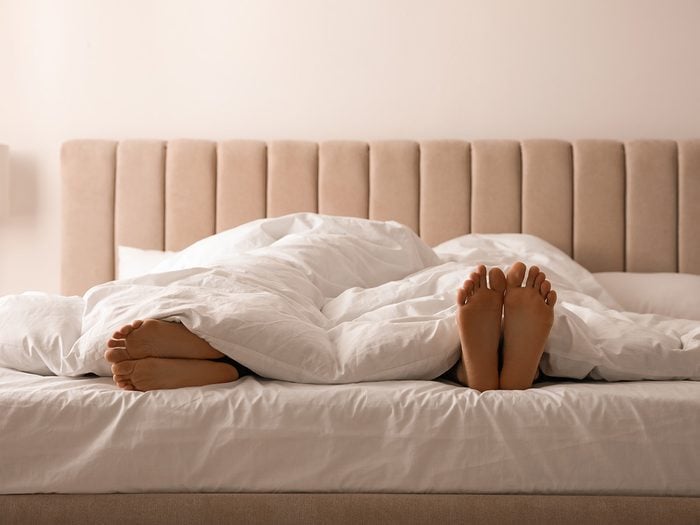
The British sleep naked
Thirty percent of people in the United Kingdom sleep naked, or at least they did when the most recent global poll on the subject was done by the National Sleep Foundation in 2013. (Compare that to just 12 percent of Americans.) Not wearing clothes to bed might be beneficial for several reasons, says Breus. “The biggest one is thermoregulation. It’s easier for ‘hot sleepers’ to be comfortable.”
He adds that there is also data linking nude sleeping with fewer yeast infections and urinary tract infections for women, and a higher sperm count for men. And a potential bonus? Healthier relationships. It’s possible that couples are intimate more often when at least one of them sleeps naked, Breus says.
Here’s why you should always read before bed.
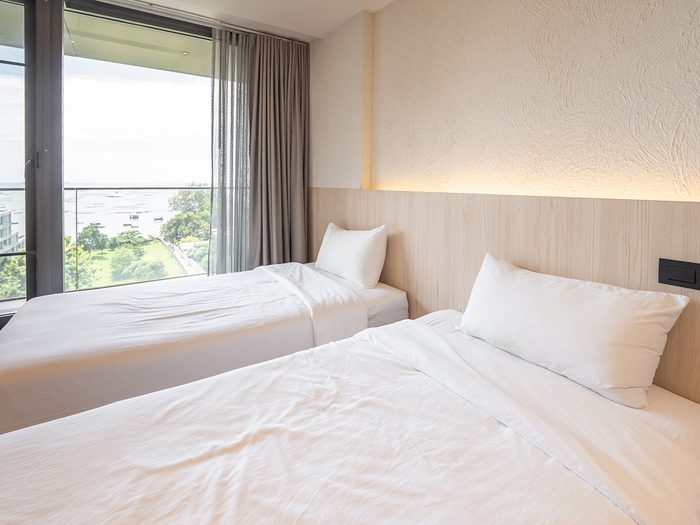
Many American couples sleep separately
In the U.S., some couples are getting a so-called “sleep divorce”: when one partner gives up the marital bed and sleeps in a separate room. According to a Slumber Cloud poll of 2,000 Americans who lived with a partner, nearly one-third said they had discussed sleeping in separate rooms, and 12 percent of them actually do. The reasons range from one partner snoring to having different sleep schedules to not having enough space in the bed.
“I’m actually a big fan of couples sleeping in separate rooms,” says Breus. He says there is a stigma attached to it, since some people may think couples who sleep apart have weaker relationships than those who sleep together. But in his experience, that’s not true. It’s more a case of absence making the heart grow fonder.
“When I advise couples to split apart for sleep, they actually have more intimacy. And partners usually don’t need to stay in separate rooms every night. I recommend it four days a week and then spending weekends together.”
These sleep podcasts are worth adding to your playlist.
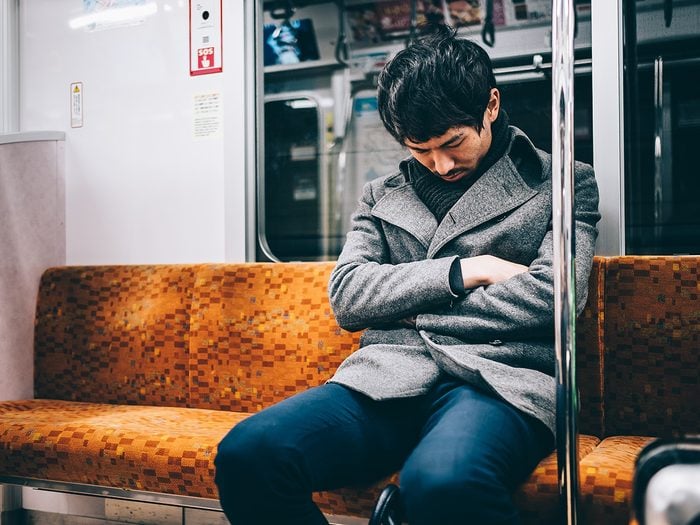
Sleeping tips from Japan
According to a government survey, 40 percent of Japanese adults sleep fewer than six hours a night. That’s likely why the tradition of inemuri, or “sleeping while present,” is practised, and that includes in cafés and on public transit.
As long as you don’t invade other people’s space when you nod off while seated, it’s widely accepted—even in the workplace. Napping at your desk is frowned upon in other parts of the world, but the Japanese regularly do it; in white-collar jobs, it shows dedication. After all, the workday often extends well into the evening, when colleagues are expected to socialize.
Daytime napping can be a good idea if you’re sleep deprived. A 2021 French study found that naps improved cognitive performance and alertness. Other research has shown that a 10- to 20-minute nap improves your mood, too.
Here’s how to fix a sleep schedule that’s out of whack.
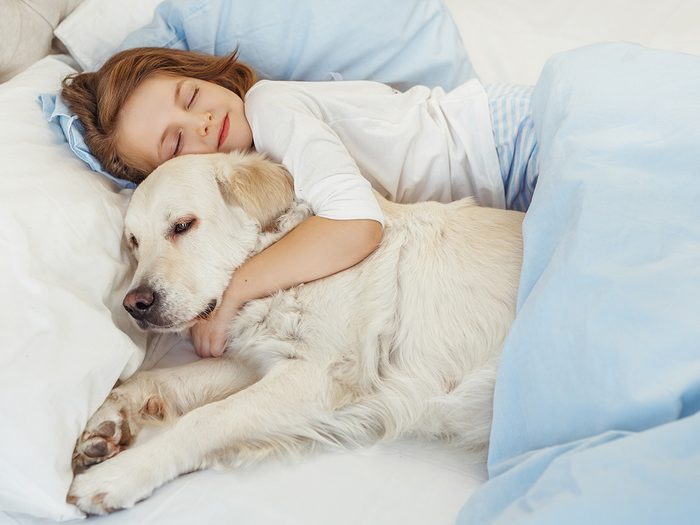
Canadians cozy up with their pets
We Canadians love our pets—so much so that, according to a survey of 1,800 pet owners carried out by Purina Canada in 2019, more than three-quarters of us who have dogs let them into our beds every night, and just over half of cat owners do. Around half to two-thirds of pet owners in the U.S., Australia and the U.K. sleep with their furry friends, too.
There’s likely a good reason why people feel comfortable sleeping around dogs, says David Samson, associate professor of evolutionary anthropology at the University of Toronto and the author of Our Tribal Future. He studies the so-called sentinel hypothesis in relation to dogs, which argues that one of the main ways they helped our ancient ancestors survive was by barking to warn them of danger during the night.
“The relationship between dogs and humans likely goes back about 55,000 years,” he says. “Dogs and humans have been co-evolving.” It makes sense that some people instinctively feel safer, and therefore sleep better, with a dog around.
A 2017 study from the Mayo Clinic found that people who let their dogs sleep in their rooms slept well, although those who let their dog sleep on their bed slept worse than those whose dogs slept on the floor next to them.
That backs up the findings of an earlier study in which more people found sleeping near their pet to be beneficial than they did disruptive. Those in favour said that it didn’t affect their sleep, and some reported that it even helped them sleep better.
If you do allow a pet to sleep on your bed, says Breus, be conscious of the fact that they’re less clean than you are. “Your animal brings pollen and dirt from outside into the bed,” he says. Some can also have a breathing or sleep disorder and can disrupt your sleep.
But on the whole, Breus believes animals on the bed are fine as long as they don’t bother you—and that’s based on first-hand experience: “My two bulldogs sleep at the end of my bed,” he says.
After these sleeping tips have become routine, try tackling our sleep hygiene checklist.